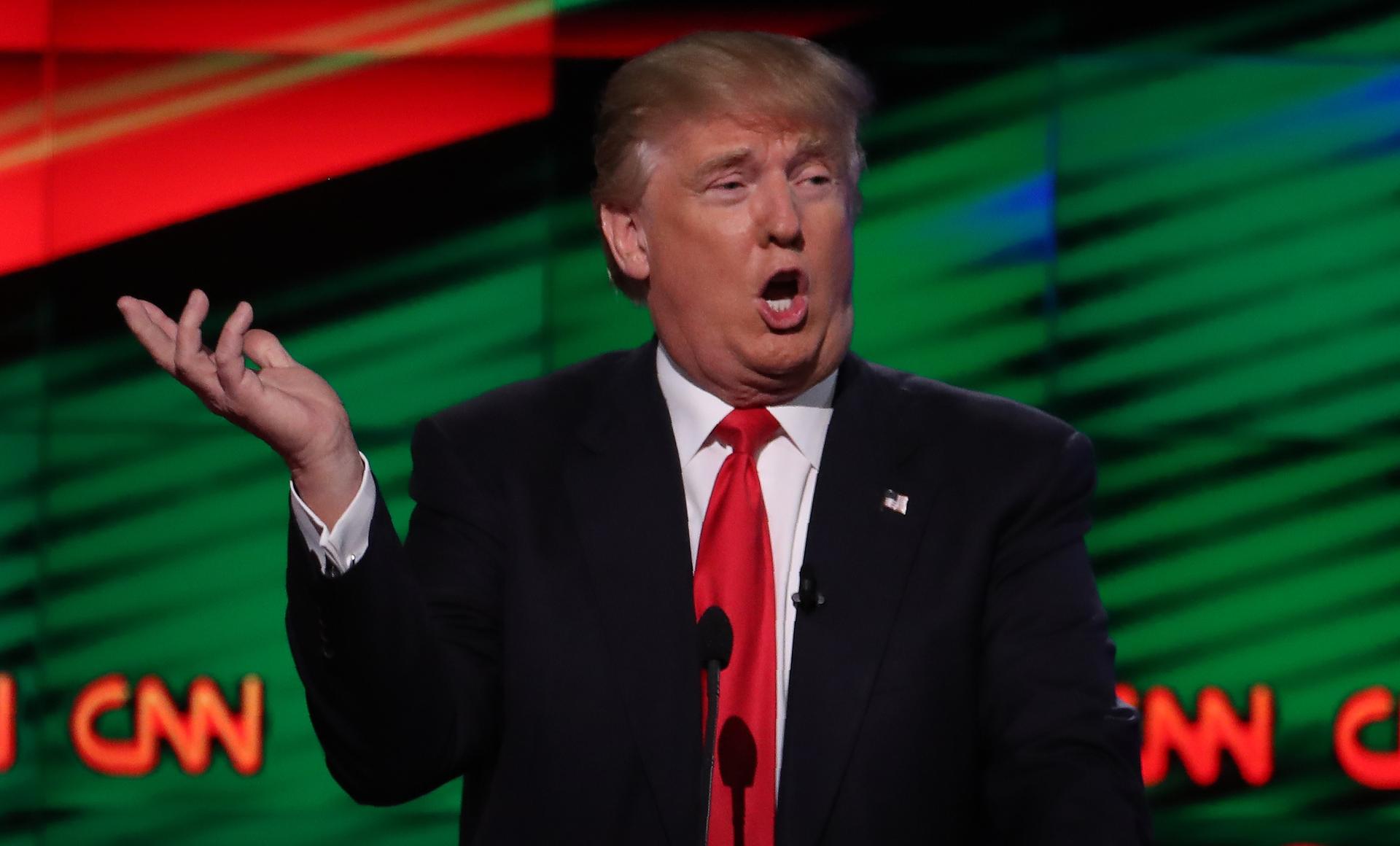Trump gets advantages on broadcast TV other candidates can only dream of
Republican U.S. presidential candidate Donald Trump speaks during the Republican candidates debate sponsored by CNN at the University of Miami in Miami, Florida, March 10, 2016.
Soon after news of the terrorist bombings in Brussels, CNN broke away from its reporters on the ground for an over-the-phone appearance of a more valued guest: Donald Trump.
CNN anchor Wolf Blitzer asked the Republican frontrunner what he would do if he were president of the United States, while CNN played a video loop of the devastated Brussels airport, the sounds of victims’ voices audible in the background. Trump held forth for 11 minutes.
CNN wasn’t the only network to take his call: Fox News, CBS, NBC and ABC all put Trump on the air, according to a count by Huffington Post media reporter Michael Calderone.
“What was surprising in this case, it was going on while the body count still wasn’t clear and people were still being let out of the airport in Brussels and a lot of details on the ground were still unknown," Calderone said.
That open invitation to Trump during a breaking news story highlights the unprecedented level of free promotion (nearly $2 billion in what’s called “earned media”) given to a single candidate in 2016. In exchange, the networks are seeing a big boost to their ratings and their ad revenue. As CBS’ Les Moonves said recently, Trump's campaign “may not be good for America, but it’s damn good for CBS.”
Not only is it free, it’s convenient. Over-the-phone interviews of political candidates used to be rare for broadcast television news.
Not any more. Trump has perfected the art of the “phoner” from the comfort of his office in Trump Tower or, for all we know, in his pajamas.
The free media also applies to coverage of Trump's campaign rallies.
There too, he has been able to exercise an unusual amount of control. Early on, the Trump campaign dictated the terms of where camera crews could be during events and the networks more or less agreed, according to Buzzfeed News. As a result, when actual news events occur — like disturbances and physical altercations in the crowd — the media is unable to capture them.
Kyle Blaine, deputy politics editor at Buzzfeed, interviewed several network staffers who say they never knew the campaign would turn out this way. “A lot of the rank-and-file at the networks are uncomfortable with turning over their platform to him," he said.
Producers and executives are “checking their judgement at the door” in exchange for the bottom line, said former CNN bureau chief Frank Sesno, who now directs the School of Media and Public Affairs at The George Washington University.
“They’re allowing one candidate to set the agenda in an extraordinary way,” Sesno said. “It has a lot to do with the bottom line. Politics brings money to broadcasting and to media in general at a time when other revenue stream have been declining. So this is the golden goose — do you kill the golden goose?”
Every day, reporters and producers at The World are hard at work bringing you human-centered news from across the globe. But we can’t do it without you. We need your support to ensure we can continue this work for another year.
Make a gift today, and you’ll help us unlock a matching gift of $67,000!
